Analysts: Gold Transactions Fu...
29 November 2024 | 1:04 am
The MetaMask wallet has 10 million MAU (Monthly active users). MetaMask is a trusted and secure crypto wallet that comes as a mobile app and a browser extension. It’s a digital wallet that can easily be integrated with different blockchain-based applications. Read on for our MetaMask review to learn about the key attributes of this cryptocurrency wallet and how it rapidly became the world-leading noncustodial wallet.
But before we go further with our ultimate review, let’s briefly look into various cryptocurrency wallets that exist in the cryptoverse.

Cryptocurrency users need cryptocurrency wallets to manage their digital assets. A crypto wallet is used to store your private keys, which are passwords that grant direct access to your crypto assets. You need a private key to sign a transaction to send or receive cryptocurrencies.
Crypto wallets don’t store your crypto, which is held on the blockchain. Instead, they store your private keys, which prove the ownership of your digital money and allow you to make transactions.
Crypto wallets can first be divided into two broad categories: Custodial wallets and Non – Custodial wallets.
A custodial wallet mirrors the banking system as we know it. Your private key is in control of a third party, which you trust to keep your assets secure and give you access whenever you need to trade them. This type of wallet is easy to use and requires less responsibility, but trusting a third party with the security of your assets comes with the risk of loss.
A noncustodial wallet is a safer alternative. Here, only you are in full control over your assets and private key. Noncustodial wallets come with a lot of responsibility, as you are solely responsible for securing your private keys from hackers and getting lost. Noncustodial wallets could be browser-based or hardware. Some trendy ones are MetaMask, Ledger Nano X, and Trezor One. Paper wallets are another type of noncustodial cold storage wallet. They are pieces of paper with private keys and public keys printed on them.
Crypto wallets can also be categorized into two groups:
A software wallet is an online wallet that stores your private keys in an app or other software. This makes managing your crypto as easy as using an online bank account.
There are three types of hot wallets:
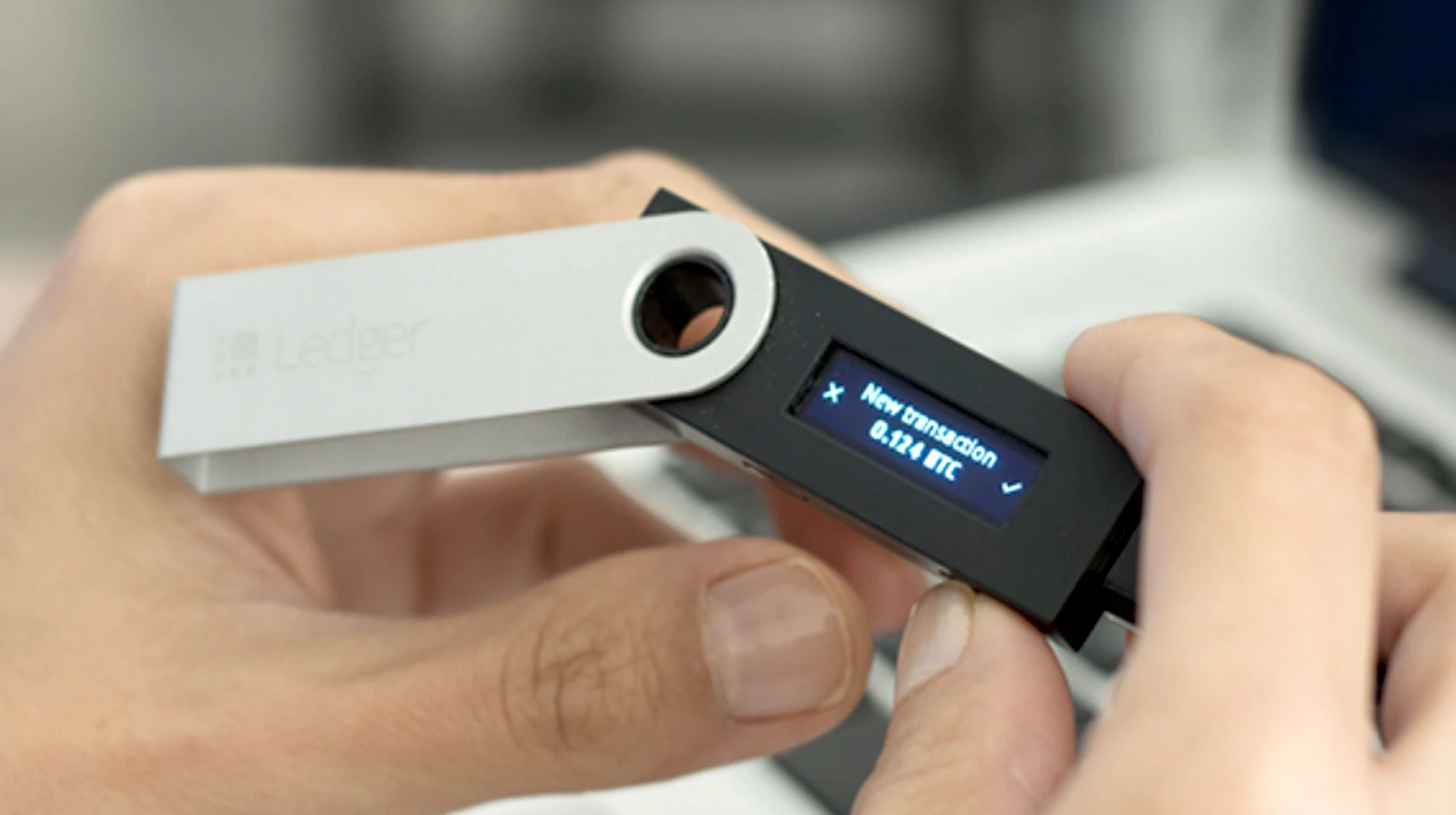
Hardware or cold wallet stores your private key offline. These are physical detachable hardware devices similar to flash drives that are only connected to a computer when you want to use your crypto. Examples are Ledger Nano wallets and Trezor – Model T Wallet. Hardware wallets are considered very secure because the keys are stored offline.
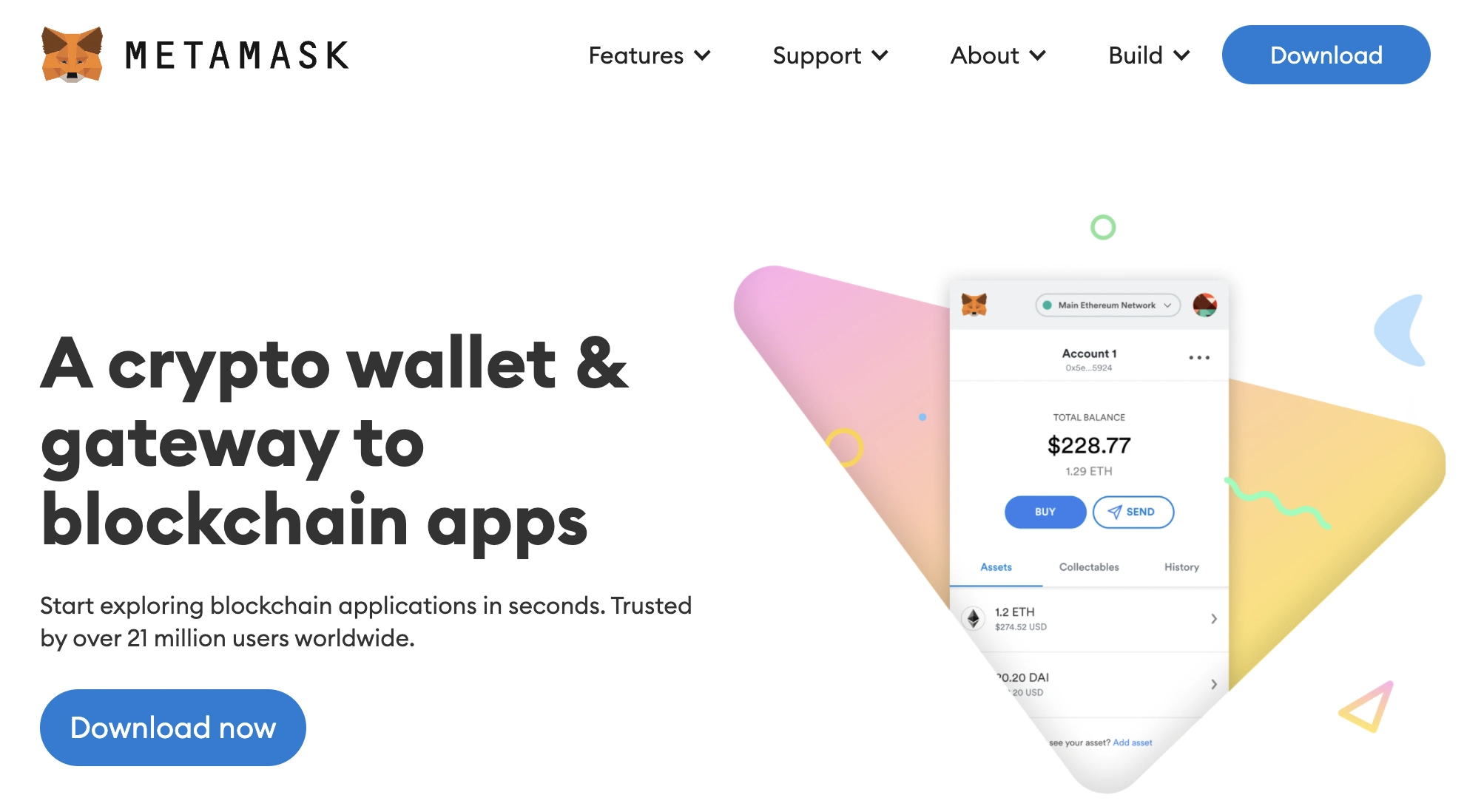
MetaMask wallet is one of the most widely used web-based Ethereum wallets. MetaMask serves as a bridge between your standard browser and the Ethereum blockchain. It was created by ConSenSys in 2016 and has raised over $250m, with a current valuation of $3.2bn.
MetaMask comes as a browser extension and mobile app that lets you access the Ethereum blockchain from the comfort of your web browser. It provides an essential utility for blockchain newcomers, token traders, crypto gamers, and developers. MetaMask equips you with everything you need to manage your digital assets, i.e., a key vault, secure login, token wallet, and token exchange.
MetaMask provides the simplest yet most secure way to connect to blockchain-based applications, enabling you to stay in control when interacting on the new decentralized web. It’s an Ethereum digital wallet that simplifies access to decentralized applications (dApps), including crypto exchanges, gaming platforms, and staking opportunities.
MetaMask is supported by Google Chrome, Firefox, Edge, and Brave browsers. It allows you to manage ETH-based tokens like ERC-721 and ERC-20 and digital assets from Binance Smart Chain and other blockchains. MetaMask provides flexibility to switch between other networks and the convenience of connecting multiple wallets.
Decentralized applications (dApps) are digital applications or programs that exist and run on a blockchain or peer-to-peer (P2P) computer network instead of a single computer. Most common dApps run on the Ethereum blockchain. Decentralized apps run on an agreement between two people encrypted in a computer code known as a smart contract.
Unlike Defi, which is mainly designed for financial activities, dApps are built for various purposes, i.e., gaming, education, gambling, etc.
MetaMask integrates with a variety of dApps built on the Ethereum blockchain. Examples of common dApps are:
DeFi stands for decentralized finance and enables you to carry out regular financial activities on the blockchain without the centralization of banking institutions. MetaMask provides unrivaled access to DeFi without compromising security, operational efficiency, or compliance requirements. The most common DeFi apps built on the Ethereum blockchain are MetaMask Swap, Sushi, Hex, and AAVE.
MetaMask Swap allows users to swap tokens directly from their wallets. Swap combines data from multiple decentralized exchange aggregators, professional market makers, and individual DEXs.
The MetaMask Swap feature enables any Web3 or DeFi user to easily access the tokens they need for the sites they use. By integrating data from the largest liquidity sources in the ecosystem — including Uniswap, AirSwap, 0x API, 1inch.exchange, Paraswap, Totle, and dex.ag — MetaMask Swap lets users access all decentralized liquidity sources from one place.
Sushiswap is a decentralized exchange built on the Ethereum network. You can use Sushi Swap to trade one cryptocurrency for another directly — it can’t be used to trade fiat for crypto or vice versa.
HEX is just a single smart contract (“App”) on the Ethereum ecosystem. It’s the first certificate of deposit on the blockchain and follows the ERC20 standard making it compatible with many wallets and exchanges. You have to pay a fee to the Ethereum network every time you send HEX.
AAVE is a decentralized finance (DeFi) protocol built on the Ethereum network that lets people lend and borrow cryptocurrency without having to go through a centralized intermediary. When lending, they earn interest; when borrowing, they pay interest.
Setting up MetaMask is pretty straightforward and similar to downloading a Chrome extension. Follow the steps described below to install MetaMask.
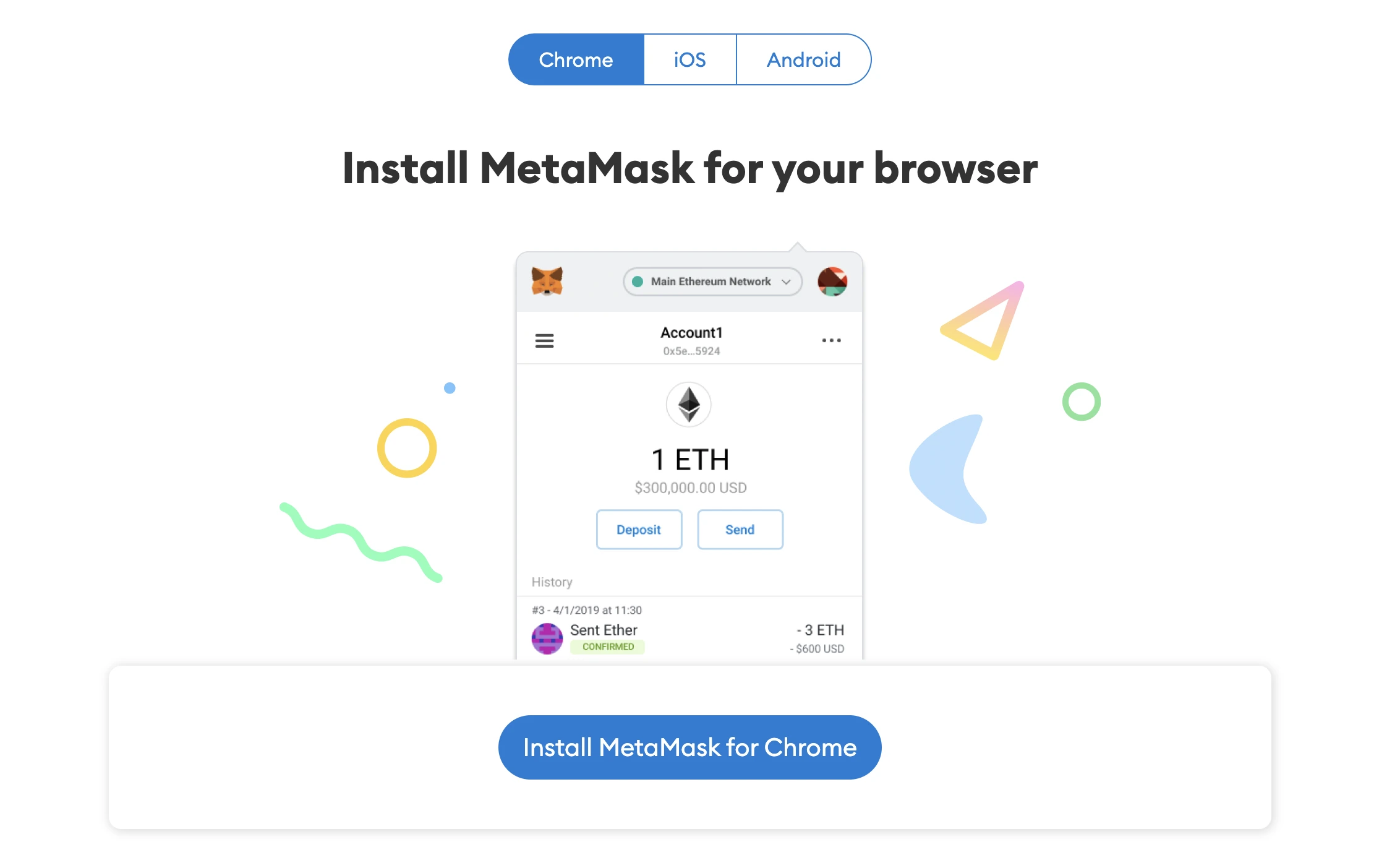
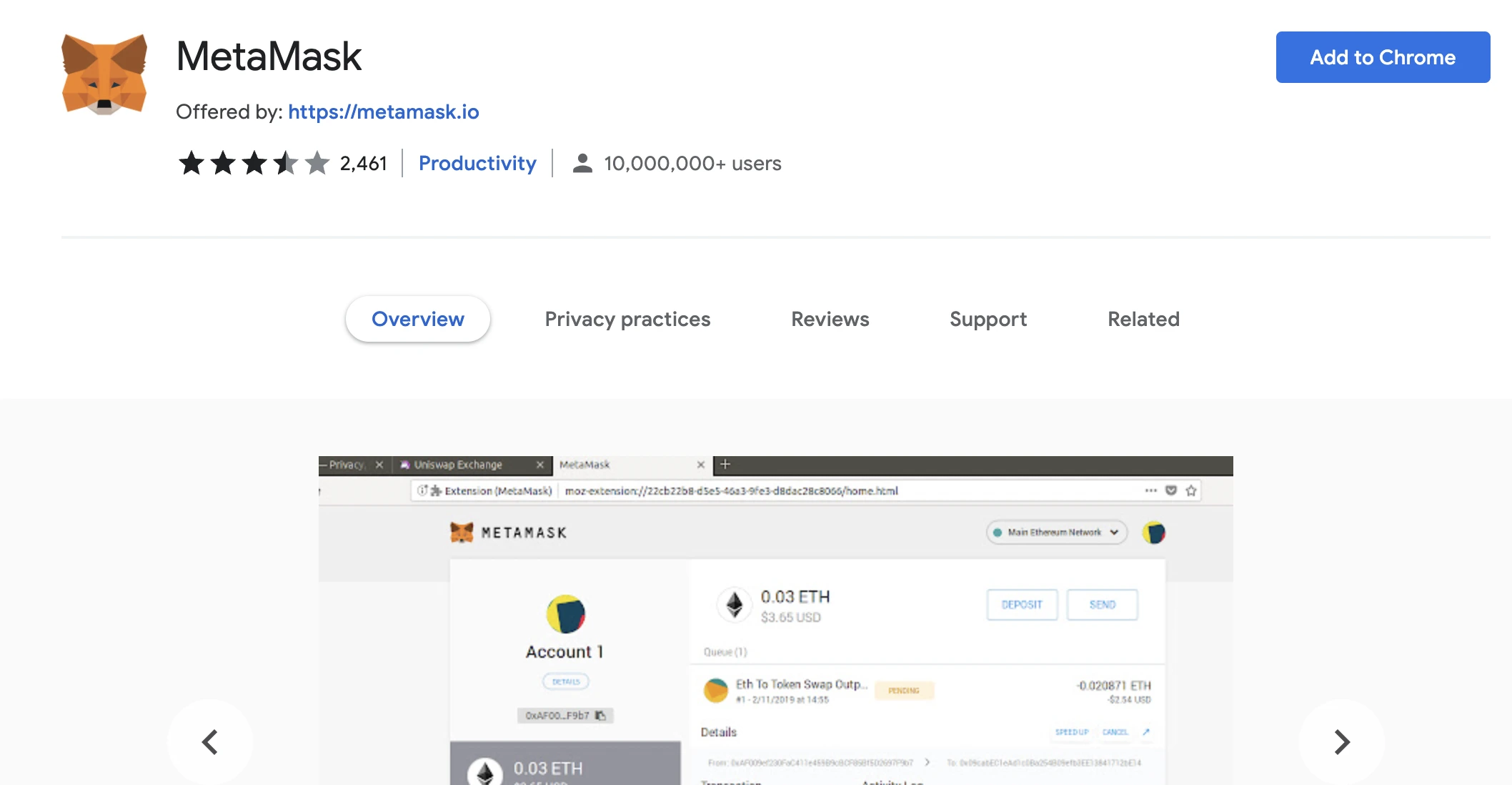
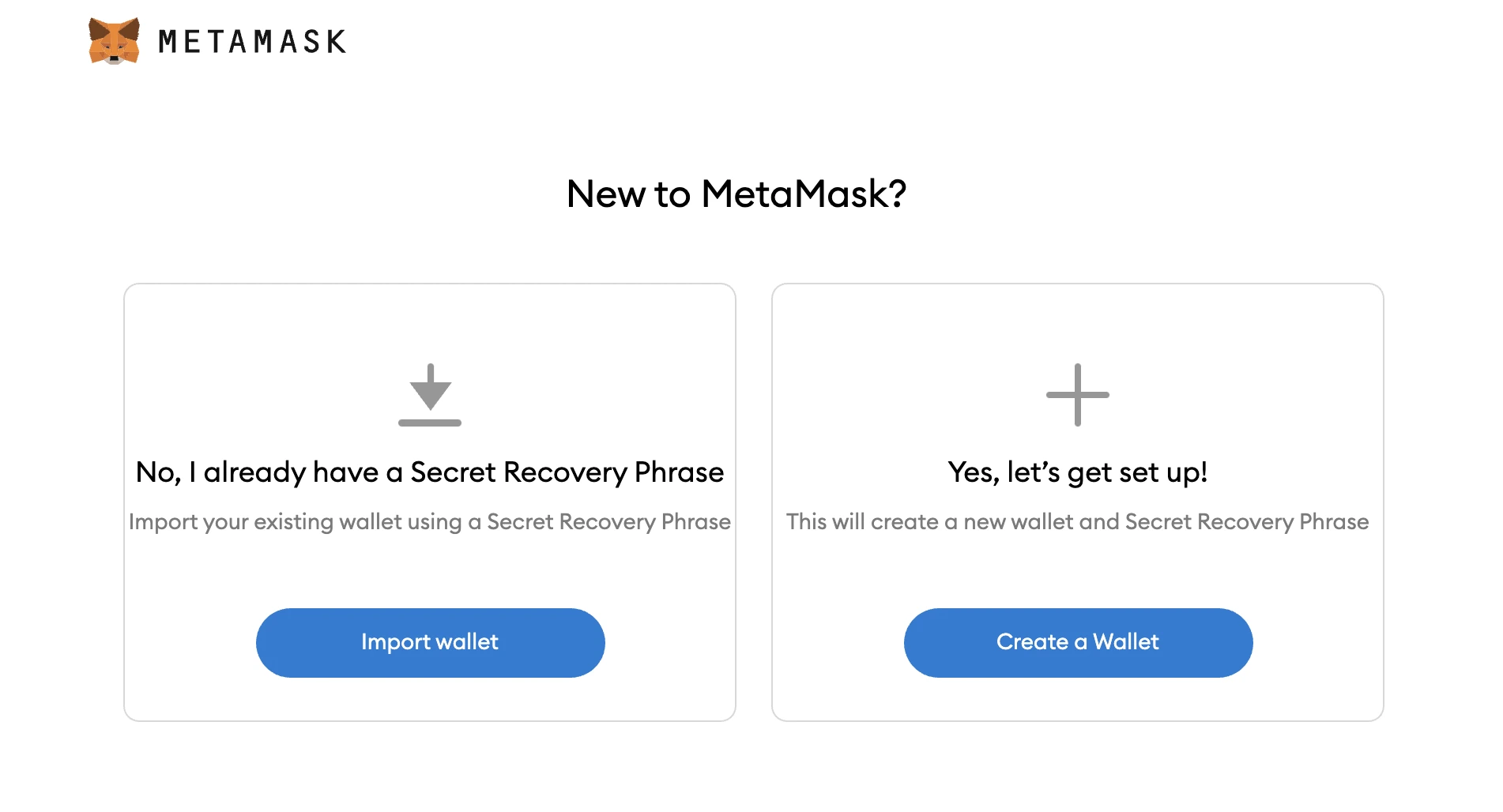
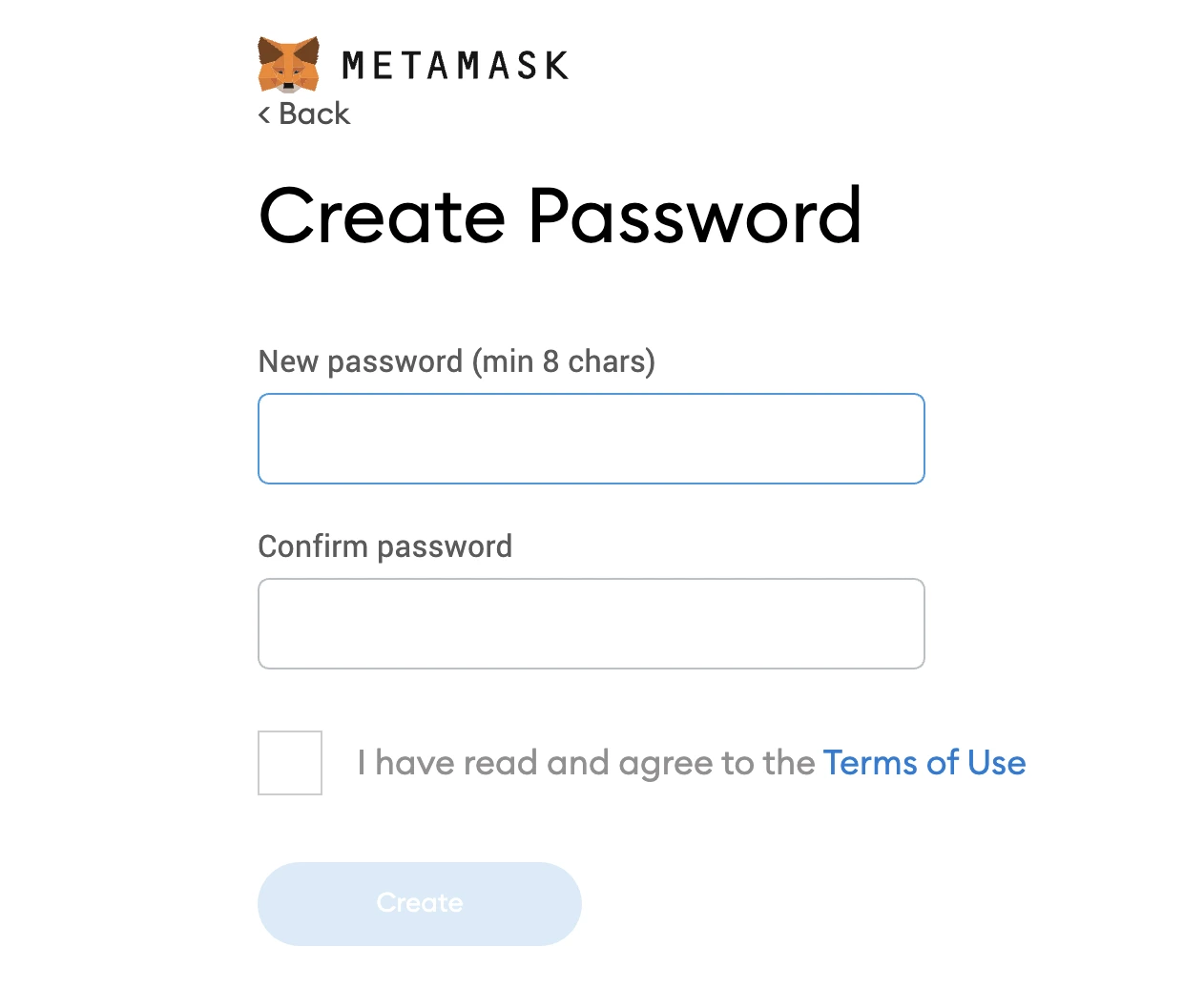
Now that you have installed and set up your MetaMask wallet let’s explore what you can do with it. You can use MetaMask wallet to:
The process of buying Ethereum is straightforward – all you need to do is click on the Buy button in your wallet. You have the option of buying Ethereum with ” Wyre ” and ” Transak “or depositing Ether into your new wallet by direct deposit.
To send Ether and ERC-20 tokens, click “Send” enter the address where you want to send and the amount. Then confirm the transaction by clicking “Accept.”
To Swap one Eth-based token for another in MetaMask, click ” Swap, “then choose your token from the drop-down menu below. You can add a custom token if you don’t find the one you’re looking for.
You can buy and store any non-fungible token in your MetaMask wallet. Once you connect your MetaMask, all you need to do is purchase any NFT art or collectible, and it’ll automatically move into your wallet under the “collectibles” tab.
MetaMask makes it extremely easy to swap your collection, show it to friends, or sell directly from the app on your phone.
You can easily access Open Sea, a Decentralized App built on the Ethereum blockchain, and the largest market for NFTs from your MetaMask wallet.
One of the unique attributes of MetaMask is its ability to connect its users to a host of Decentralized Applications. MetaMask serves as a bridge between your web browser and dApps. Go to Settings and select Connections to link or connect a dApp to your MetaMask wallet. Choose an Existing dApp from the drop-down menu or add a new one in the Taskbar, and click Connect.
To get the best out of your MetaMask wallet, combine it with a good hardware wallet.
MetaMask is a hot wallet connected to the Internet, which means it’s vulnerable to online attacks. The most trusted and secure means of storing crypto assets offline in hardware wallets. Some of the best hardware wallets include the Ledger Nano X, as well as the Trezor Model T. MetaMask supports some of the most widely used hardware wallets, so, for maximum protection, it’s best to combine your MetaMask wallet with a hardware wallet.
To set up a Ledger Nano X hardware wallet, visit their official website and follow the instructions. Then, Install the Ledger Live Application.
Your first step is to plug your Ledger device into your computer, ensure it powers on, and then input the pin you choose when setting up your Ledger device.
Ledger hardware wallet supports a host of cryptocurrencies. To connect your MetaMask wallet, you need to open the Ethereum application on your Ledger Nano.
Once the Ethereum application is open, press the right side button, locate the “Settings” option, and press down on both buttons to open the menu. Then select “Contract Data” and click on “Yes.” Once you set up your Ledger device for the first time, you won’t have to do it again each time you want to use it with MetaMask.
Your Ledger is now ready!
Since you have already installed MetaMask, you need to open up your browser and click on the MetaMask icon to interact with the application.
Click on “Connect Hardware Wallet,” click on Ledger to select it, and click CONNECT. Next, you will be shown a list of ETH addresses. If this is the first time you set up a wallet, simply select the first address, then click CONNECT.
You have now connected your Ledger to MetaMask!
MetaMask is considerably safe among hot wallets, and there have been no major hacks on it. However, while it doesn’t store your sensitive data, the web browser does, and most hacks occur through social engineering schemes and phishing.
Remember to NEVER give out your seed phrase to anybody; otherwise, you risk losing all your crypto holdings and beware of hackers posing as an authoritative body and asking for your seed phrase.
Also, remember to use only one tab at a time and keep the wallet locked when not using it.
MetaMask is relatively safe, but MetaMask is often merged with a hardware wallet like the Ledger Nano X and the Trezor Model T to ensure security.
MetaMask extension is free to download and install; however, default gas fees are applied for every transaction conducted on it. A gas fee refers to the transaction fee on the Ethereum blockchain that users pay to get their transactions validated or completed.
MetaMask recently released its swap function, enabling users to swap Ether for a range of ERC-20 tokens for a service fee between 0.3% and 0.875%.
MetaMask is the most widely used software wallet with over 21 million registered users. There are other alternatives to MetaMask which are equally popular amongst crypto traders, such as:
Our ultimate MetaMask wallet review revealed why it’s the most widely used software wallet out there. It’s very easy for beginners to navigate and allows users to interact with smart contracts and in-demand Decentralized Apps, all from the comfort of your favorite web browser.
MetaMask is an Ethereum based wallet, and the Ethereum blockchain is an essential component of Web 3. With over 21 million active users monthly, it’s the world’s leading noncustodial crypto wallet and a big driver of the Web 3 future, a decentralized internet experience for everyone. MetaMask also gives you control over your holdings, eliminating the need for government and Big tech.
MetaMask is open-source software constantly updated by a global network of developers and its strong community.